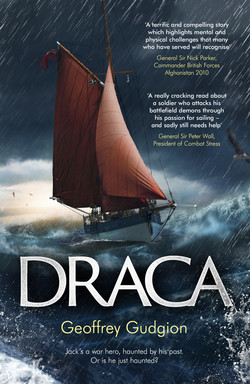Читать книгу Draca - Geoffrey Gudgion - Страница 14
На сайте Литреса книга снята с продажи.
*
ОглавлениеOne summer when Jack was a kid, the family stayed on a farm for their summer holidays, and the farmer set a magpie trap in his yard. In the centre, in a little cage within a cage, was a live one. The ‘ call bird , ’ the farmer said. He ’ d left it a dish of water and even a bit of dead pigeon to eat, but the thing flapped around making a lot of noise in that harsh, rattling way of magpies. As Jack and the farmer watched from inside his barn, three more magpies arrived and hopped down through the wire door to see what all the fuss was about. They went frantic when the farmer walked over and they couldn ’ t get out, and he shot them, one by one, with a .22 rifle he kept for vermin.
The Taliban hadn ’ t killed Jack outright because he was their call bird, but they ’ d used Dusty Miller for target practice. It was usually Dusty who woke Jack in the black hour before dawn, and always with the same pleading look, that way he ’ d stared at Jack as if he could do something. Dusty had come running back for him through the firefight in a mad, heroic, suicidal dash, and he was still coming back for him, pulling him out of the fug of sleep when the alcohol drained from Jack ’ s system and all that was left was the sour taste of guilt. Sometimes, in those first moments of wakefulness, Jack could smell roasting meat. Then he ’ d have to walk outside and breathe clean air, whatever the hour, whatever the weather. He ’ d have run, if he could. Even in summer, the air just before dawn can be pure as snow.
There was a line of peach in the sky to the east as Jack laced his boots outside the door, enough to show the silhouettes of trees and the outline of the boat seat, hunched like a monk ’ s cowl against the night. Grandpa ’ s carved dragon would be in there, invisible, black within black. Jack reached in to touch its snout, and settled beside it until there was enough light to see his footing.
On calm, moonless nights the dawn starts in the sea, not the sky. Its flat surface reflects a light the human eye can ’ t see. In time, the light softened to show tendrils of mist, still hanging between the trees and floating over the water. The outlines of the Scots pines began to form against it. Now the same two branches could be arms raised in surrender.
When the tide was just on the ebb it sucked at the beach below the cottage, a soft susurration at the limit of hearing. In the pre-dawn darkness it sounded like whispering, so human that he strained to distinguish the words. The break of each wave could be a soft consonant, a n ‘ f ’ perhaps, followed by a longer vowel as the water spread over the shingle and left a softer, lisping retreat. F- aay – th , f- aay – th , endlessly repeated. It was as if a mass of men waited there, watching, murmuring among themselves and all of one, menacing mind.
Enough. Jack didn ’ t want to start that line of thought again. Breathe the dawn. He stood, walking towards the threat, not running from it. Soon the sandy path beyond the garden gate was a faint paleness between black gorse, and its softness masked his footsteps through trees that were just trees. The track led along the coast and away from the beach until the dominant sound was not waves but the pre-dawn cacophony of seabirds. A stream flowed out into the harbour in Freshwater Bay, tumbling off the hills fast enough to stop the inlet silting, and sweet enough to allow banks of reeds to form at the water ’ s edge. Their sound was a soft, silken rustle, as real a bridge onto the peace of Witt Point as the rough logs across the stream.
On Witt Point , Jack sat on a stone, sniper- still, at one with nature and its morning routine. Navigation lights winked out in the harbour, sending brief pulses of green and red over the water. Grandpa said he found them comforting, these signposts of the sea. Now there was enough light to see shapes moving, black within grey : the snuffling waddle of a badger, the dainty steps of a deer through the trees. He could inhale sea smells and pine resin and dew-damp grass. There used to be a Saxon chapel here, though there was nothing left of it but mounds in the grass and a few corners of dressed, mossy stones that had been brought up when some trees blew down in a storm. Even so, the place was cleansing, as if it had absorbed centuries of devotion and could give back a little of that peace. It was a spot where thoughts could be allowed to float to the surface of the mind.
And that morning, Jack could feel his grandfather slipping away with the tide.
